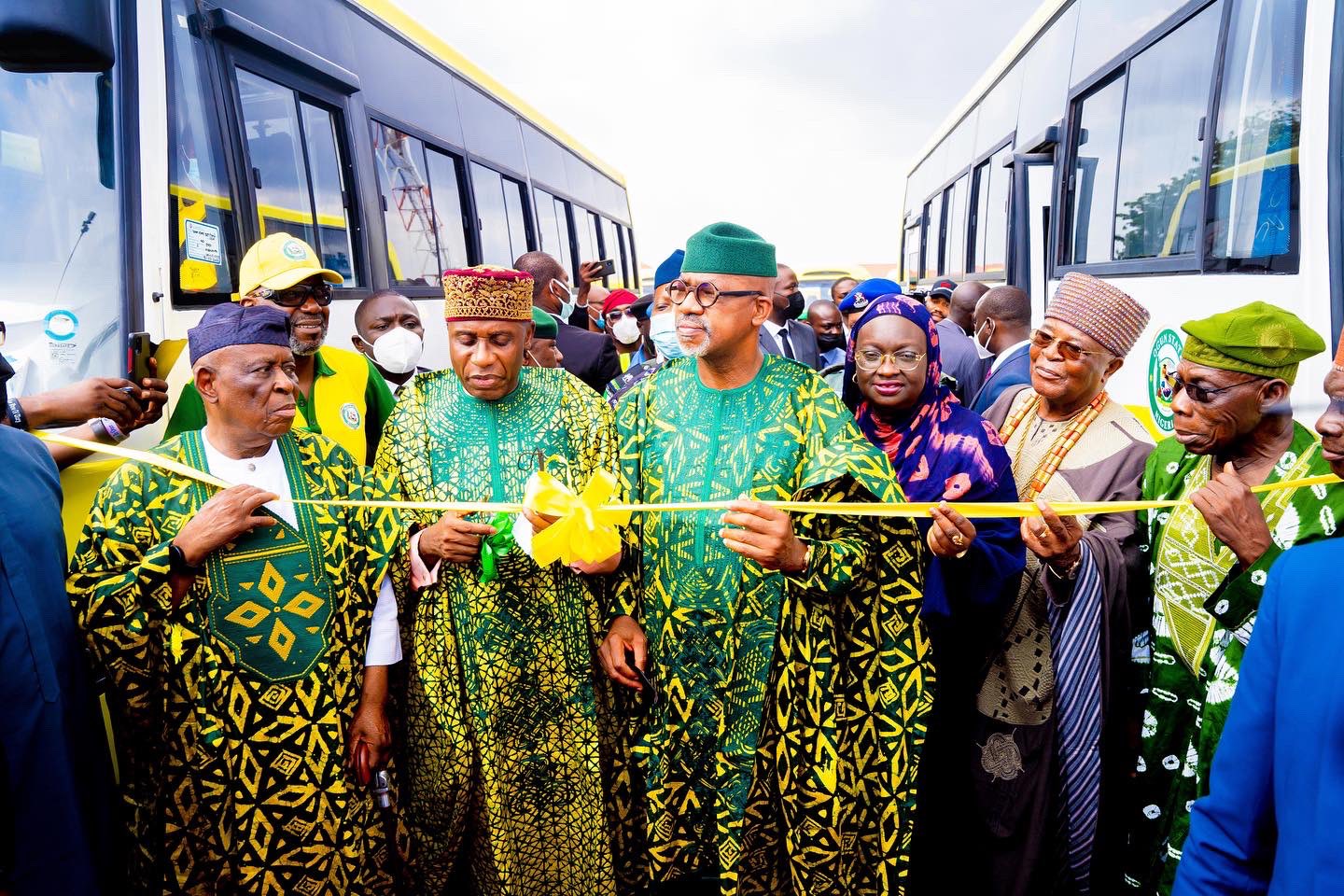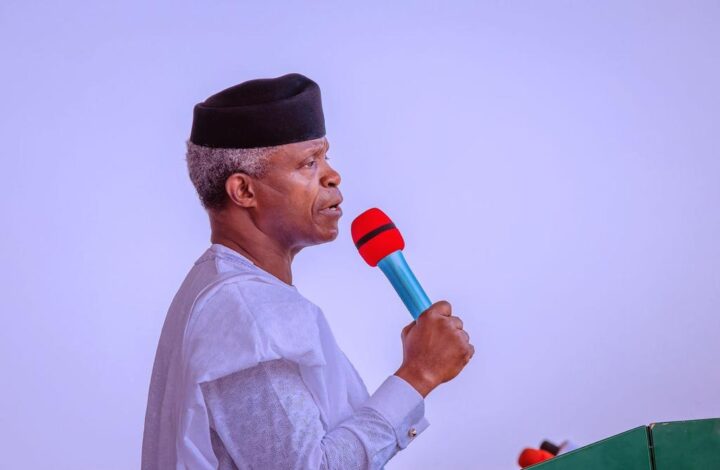BY DANIEL UCHE NWUZOR
Nothing enhances quality of life in cities like a reliable and well-planned mass transit system. The fact the ease of commuting is often a metric considered in the ranking of cities and states on the livability index underscores this. But beyond the bragging rights that a positive ranking may confer, governments across the world recognize there is a causal relationship between their cities’ economic condition and the quality – and, indeed, affordability – of public transport accessible to the vast population. Governor Dapo Abiodun clearly understands this.
As governor of Ogun State, arguably Nigeria’s industrial capital, he sees firsthand the municipal challenges arising from being a neighbour with Lagos State, the biggest economy in the country. The daily cross-boundary migration makes a seamless transport system quite expedient. It is a challenge that the Ogun State’s Multi-modal Transportation Master Plan is meant to address. “This transport policy takes into consideration the short, medium, and long term approaches to the development of our transport sector,” Abiodun explained at the launch of mass transit buses last week.
The buses which, significantly, are installed with free wi-fi represent the pilot phase of the transport masterplan have begun conveying commuters within Abeokuta and will expand to other cities. The planned route extension beyond the state would essentially proceed in collaboration with the Lagos State government under the Lagos-Ogun Joint Development Cooperation. If the understanding is concretized, it means that Ogun State-owned buses bearing passengers could on the Bus Rapid Transit (BRT) lanes in Lagos and back, roughly through these routes: Abeokuta Mowe, Kara, Marina, as well as Ifo and Ado Odo-Ota axis. It is just as well that the Governor Abiodun administration has carried out massive rehabilitation and reconstruction of roads to open up new corridors for these mass transit buses.
Some may cynically scoff at the decision to install free wi-fi in the buses. But for Governor Abiodun, it is by no means grandstanding. It is rooted in the realization of the vast opportunities inherent in information and communication technology, especially in a state like Ogun which has the country’s highest tertiary institutions’ student population. So, the saying that ICT is the new oil is no soapbox rhetoric. He understands that for the state’s teeming ICT-savvy youths, it has become a lived experience.
Advertisement
A recent report published by the National Bureau of Statistics validates this position. As the report for 2021 shows, Ogun State has Nigeria’s second highest internet subscription rate. According to the report, for every one hundred internet subscribers in the country, 12 are based in Lagos State while six are based in Ogun State.
The multi-modal transportation masterplan incorporates road, rail, water, and air transport components. The vision is to create an interface in a way that each transport mode doesn’t just exist in isolation, but complement one another in a somewhat unbroken chain for both intra- and inter-state commute. With regard to rail transport, Ogun State has leveraged the benefits of its proximity to Lagos to strike an agreement that would see the ongoing rail project developed by the latter extended to the former. Essentially, the 37-kilometre Red Line (scheduled for completion in December this year) which runs from Marina, in Lagos, would extend to Ijoko and Kajola, both boundary communities in Ogun State’s Ifo Local Government Area.
This agreement also entails the extension of the 27.5-kilometre Blue Line rail project that runs from Marina through Okokomaiko, a high-density community on the outskirts of Lagos, down to Agbara, an industrial estate in Ogun State. It’s important to note that the Abiodun administration’s ongoing construction of the Atan Lusaka road was conceived to maximally exploit the economic benefits that a rail line extension to this industrial heartland would yield.
Advertisement
On a similar note, there is currently a track-sharing agreement between the Nigeria Railway Corporation and Ogun State, which is home to some major stations along Nigeria’s western rail corridor. These include the popular five stations comprising Agbado, Kajola, Papalanto, Laderin and Olodo, as well as the additional five approved by the NRC in late 2020.
At the heart of the rail expansion and sustained improvement of road network is the implicit understanding of their capacity to open up more rural communities. Doing so fosters a sense of inclusion, particularly in those communities whose people may have long felt literally cut off from the immense opportunities that improved road network and regular rail service would normally confer. This is a key goal of the Governor Abiodun administration’s development strategy, which seeks to inspire economic growth through critical enablers like eliminating factors that stifle businesses, enthroning secure neighbourhoods and an integrated transport system that is largely affordable.
Another crucial arm of the state’s multi-modal transport system is the construction of an airport. Governor Abiodun is understandably upbeat about its completion which is believed due by December this year. “The impact of the agro-cargo airport will have positive effects on hotels and warehouses being constructed in the area. We estimate that in the first 18 months, we will create a minimum of 25,000 jobs in that airport,” he said.
State policies, to a very large extent, derive validation from the outcomes they generate. One of the most reliable metrics for gauging growth could be gleaned from states’ capacity to generate internal revenue. In 2020, Ogun State was ranked fourth behind Delta, Rivers and Lagos. Although its position was still fourth on the half-year ranking for 2021, the state’s IGR figure experienced a 131.5% year-on-year growth.
Advertisement
Indeed, the state’s remarkable performance on various development index is further proof that social and economic growth is not fortuitous, but a product of painstaking and scrupulously conceived plan of action. So, whenever the governor voices his vision to make Ogun State an economic powerhouse – as he often does – it is not mere rhetoric that panders to the gallery; it is one strongly rooted in the sort of conviction that can only come from evidence-based reality.
Nwuzor, a public affairs analyst, resides in Abeokuta.
Sent from my iPad
Advertisement
Views expressed by contributors are strictly personal and not of TheCable.
Add a comment





